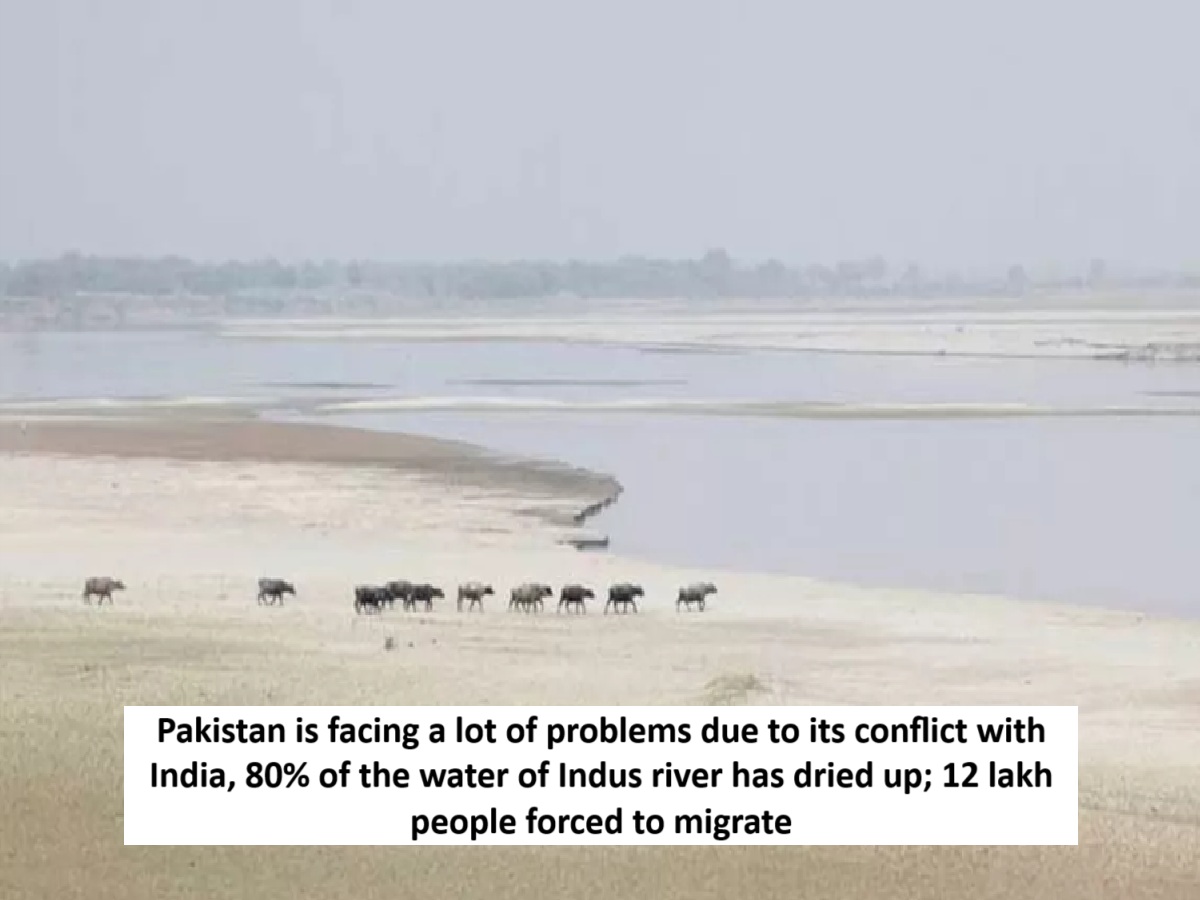
News Topical, Digital Desk : Habibullah Khatti is visiting his mother's grave to bid her a final farewell before leaving his village in Pakistan's Indus Delta.
This is the area where the Indus river meets the Arabian Sea. The entry of sea water into the delta here led to the downfall of farmers and fishermen.
"We are surrounded by salt water for about 15 kilometres from Abdullah Mirbahar village in Kharo Chan town," Habibullab Khatti told AFP.
Due to this, fishing work declined here. We started sewing work but now this has also become difficult because only four out of 150 houses are left.
According to Khatti, the area becomes strangely quiet in the evenings, stray dogs roam around the empty houses made of wood and bamboo. There were about 40 villages in Kharo Chan but all have disappeared due to the rising sea water.
More than 12 lakh people migrated from the Indus Delta region
According to statistics, the city's population is expected to decline from 26,000 in 1981 to 11,000 in 2023. Khatti, from Kharo Chan town, is now preparing to move his family to Karachi, which is economically a big city in Pakistan.
The Pakistan Fisherfolk Forum, which works for fishing communities, estimates that thousands of people have been displaced from the coastal districts of the delta.
However, according to a study published in March by the Jinnah Institute, a think tank headed by a former climate change minister, more than 1.2 million people have been displaced across the Indus delta region in the past two decades.
Water flow reduced by 80 percent
According to a 2018 study by the US-Pakistan Centre for Advanced Studies in Water, water flow into the delta has declined by 80 per cent since the 1950s due to irrigation canals, hydroelectric dams and the effects of climate change on melting glaciers and snow. This has led to a devastating encroachment of seawater.
The salinity of the water has increased by about 70 percent since 1990, making it impossible to grow crops and severely affecting shrimp and crab populations. The delta is sinking and shrinking, says local WWF conservationist Muhammad Ali Anjum.
There is no option left except leaving the house
Let us tell you that the Indus River starts from Tibet and flows through Kashmir into Pakistan. The Indus River and its tributaries irrigate about 80% of Pakistan's agricultural land and are the means of livelihood for millions of people.
This delta at the mouth of the river was once ideal for farming, fishing and wildlife, but a study by a government water agency in 2019 found that more than 16% of fertile land has become infertile due to seawater encroachment. Due to which people's houses are getting submerged and people are leaving their homes.
Efforts are being made to restore the delta
Talking about the Indus river, its course was first changed through canals and dams during the British rule and recently many hydroelectric projects were started on it.
However, several canal projects on the Indus river were halted following protests by farmers earlier this year.
To stop the degradation of the Indus River Basin, the government and the United Nations launched the 'Living Indus Initiative' in 2021. The initiative seeks to restore the delta by reducing soil salinity and protecting local agriculture and ecosystems.
Sindh government running a campaign to restore mangroves
The Sindh government is running a mangrove restoration project, which aims to revive forests that act as natural barriers to prevent saltwater entry. Mangroves are even being restored in some parts of the seashore.
India cancelled the Indus Water Treaty
Meanwhile, following the Pahalgam terror attack, India has taken a tough step and cancelled the 1960 Indus Water Treaty with Pakistan.
India has called for the treaty to never be reinstated and has built dams upstream, which would reduce the flow of water to Pakistan. Pakistan has called it an act of war.
Climate activist Fatima Majeed, who works with the Pakistan Fisherfolk Forum, said these communities have lost their homes as well as their lifestyle in the delta. Majeed says, “We have not only lost our land, but also our culture.”
--Advertisement--

 Share
Share



